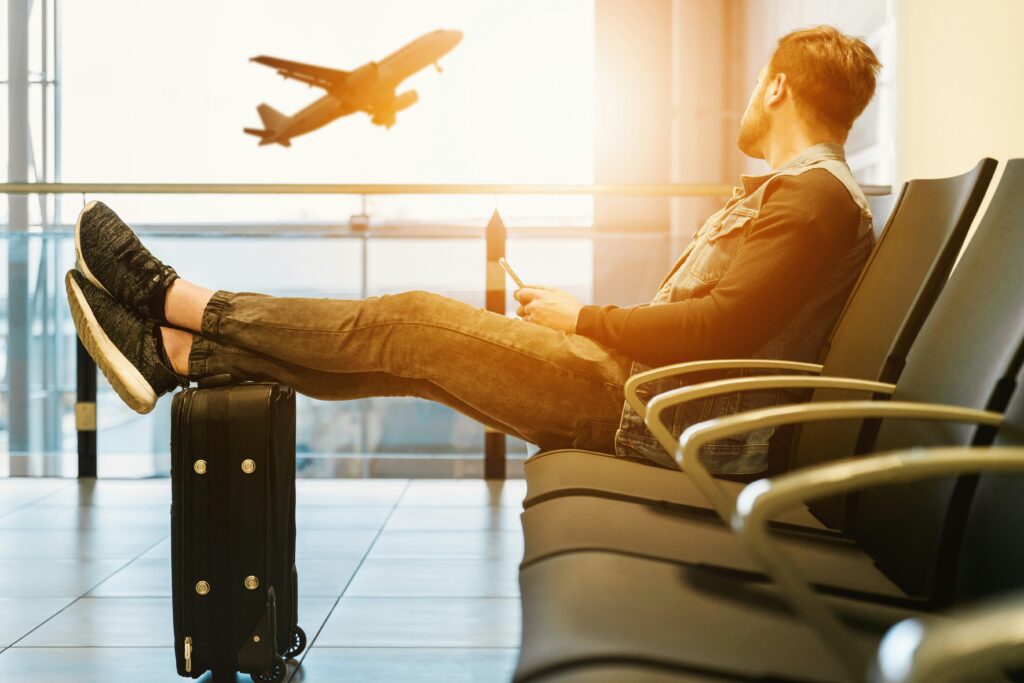
Traveling abroad is a thrill. You meet new people, see stunning sights, and eat delicious food. But, let’s be real—sometimes, life throws a curveball. I remember the time I got a stomach bug in Thailand. It wasn’t pretty. I was far from home, feeling miserable, and desperately needed help.
If you’re a digital nomad, getting sick while traveling can feel overwhelming. This guide aims to prepare you for that unwanted scenario. No one wants to think about being ill, but it’s smarter to be ready than to wing it.
What This Guide Covers
In this post, we’ll cover what to do if you get sick abroad. You’ll get practical tips on how to seek medical help, manage your work, and take care of your health.
Why It Matters
You might think, “I’ll be fine. I’ll just bounce back.” But here’s the problem: the unpredictability of travel means you could find yourself needing help when you least expect it. Knowing what to do can help you feel calmer and more in control.
First Things First: Know Your Destination
Before you even pack your bags, do a little homework.
Research the Healthcare System
Each country has its own healthcare system. Some places have excellent facilities, while others do not. Knowing where to go for help is crucial. Check online for local hospitals, clinics, or pharmacies.
Check Your Insurance
Your health insurance needs to cover you abroad. Read the fine print. If you don’t have coverage, consider getting travel insurance. It can save you a lot of headaches (and money) if you end up needing medical attention.
If You Get Sick: Assess Your Symptoms
When you start feeling unwell, the first thing to do is assess your symptoms.
Mild Symptoms
If you have a headache, slight nausea, or fatigue, it might just be travel fatigue. Take a break. Rest. Hydrate. Sometimes it’s just your body adjusting to a new environment.
Severe Symptoms
If you experience high fever, persistent pain, or difficulty breathing, don’t hesitate. Seek medical help immediately. Remember, your health should always come first.
Finding Medical Help
So, you’ve decided it’s time to see a doctor. What now?
Use Local Resources
If you have a local SIM card or access to Wi-Fi, search for hospitals or clinics nearby. Look for places with good reviews. Nothing feels worse than ending up in a sketchy place when you’re feeling awful.
Ask Your Accommodation
Don’t hesitate to ask your hotel or Airbnb host for recommendations. They often know reliable places to go. They’re locals; they want to help.
Navigating a Doctor’s Visit
Feeling anxious about visiting a doctor in a foreign country? That’s totally normal.
Language Barrier
Here’s the thing: language can be a barrier. Use translation apps to communicate your symptoms. It’s okay to write things down ahead of time, like “I have a fever,” or “I need medicine for a stomach ache.” It’ll help both you and the doctor.
Payment Process
Be prepared to pay upfront in many regions. Ask if the clinic accepts credit cards. Keep receipts, especially if you plan to file an insurance claim later.
Taking Care of Work
As a digital nomad, it’s hard not to worry about your work.
Inform Your Clients or Boss
If you’re going to be out for more than a day or two, let your clients or boss know. Be honest but brief. They’ll appreciate the communication, and it takes some pressure off you.
Manage Expectations
Don’t push yourself. If you can work a bit, do it. But be realistic. Health comes first. If you can’t, that’s okay. Your health is your most important asset.
Staying in Touch with Home
Sometimes, we need a bit of comfort.
Reach Out
Call a friend or family member. Share how you’re feeling. Maybe they can give you some words of encouragement or even suggest a remedy that helped them before.
Connect with Other Nomads
Use social media or forums like Facebook groups or Reddit communities to reach out for advice from other travelers who may have faced similar situations. Their experiences can be invaluable.
Preparing for Future Travels
After you recover, think ahead to avoid future health issues.
Pack a Basic First Aid Kit
Include common over-the-counter meds like pain relievers, antihistamines, and antacids. Also, pack any personal medications you use regularly. You’ll thank yourself later.
Stay Hydrated and Eat Wisely
Your body needs fuel, especially when traveling. Drink plenty of water and choose your food wisely. Not everything that looks good is good for you.
Final Thoughts
Getting sick while traveling is a serious bummer. But you’re not alone in this. Knowing what to do puts you in a better spot.
Caring for your health is just as important as enjoying the view from that mountain top. So if you’re ever feeling under the weather, remember to take a step back, assess the situation, and reach out for the help you need. Safe travels, and may you always stay healthy on the road!
**Related Reading:** – [Related: How to Plan a Solo Trip on a Budget] – [Related: Top Destinations for First-Time Solo Travelers] **#SoloTravel #Essential #Guide #Digital #Nomads #Sick #Traveling**
